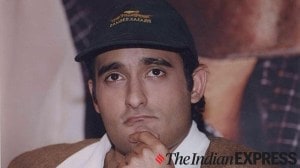The sequined glove
It was impossible to look away from himnot when he was a dimpled child singer crowned...
It was impossible to look away from himnot when he was a dimpled child singer crowned with a pillowy Afro,not when he became a pop demigod uniformed in rhinestones and epaulets,or when his surgical transformations mirrored back to the culture the blurring of boundaries demarcating adulthood,sex and even race.
There is no way to know what was on Michael Jackson8217;s mind as he journeyed from boy to man and partway back,from a brown-skinned man to one so pale he required an umbrella when he went out,from a pop star with a quirky but defined masculinity to one who seemed most comfortable in a more nebulous zone. What seems clear is that all of was intentional.
Michael Jackson was entirely of show business. From age 5,he was seldom out of costume,and so it is not surprising that his prodigious musical talents were matched by a genius for deploying the symbolic language of fashion in an age dominated by visual mediums: a single sequined glove held aloft signifies only one name.
The glove was merely an element in an image devised with mastery,and the assistance of the music videos. There was also the trademark black fedora. There were the military costumes. There were the soft-soled black loafers and shortened trousers and the white socks used to direct the eye to a dancer8217;s footwork.
In the 1980s,Jackson drastically revamped the image of a pop idol. By the time of Beat It,Jackson had added an element of the supra-normal to his appearance. He had begun to flout convention,wearing full makeup in public; attending an award ceremony at the Reagan White House dressed in a blue sequined jacket with gold sequined epaulets,a single glove,two-toned spats and aviator glasses; and to wear surgical masks that lent anti-contagion strategies a measure of chic.
It was not until after Thriller became the soundtrack for a global decade that Jackson set out on the road to his more strenuous physical transformations. His Jheri curl was replaced by a silken hair weave that framed and softened a face eventually so much altered by the surgeon8217;s scalpel that it began to seem as if the singer sought not some unattainable ideal of beauty but the limits of medical technology.
What effect did this have on fans? It is unlikely that legions of music lovers rushed to have their anatomies altered after seeing the video of Billie Jean. But Jackson created the space for them to do so. And he remained unapologetic in asserting that his imagein all its curious and repellent,beautiful and alluring,sexy and asexual,masculine and feminine manifestationswas his alone own to devise.
- 01
- 02
- 03
- 04
- 05































